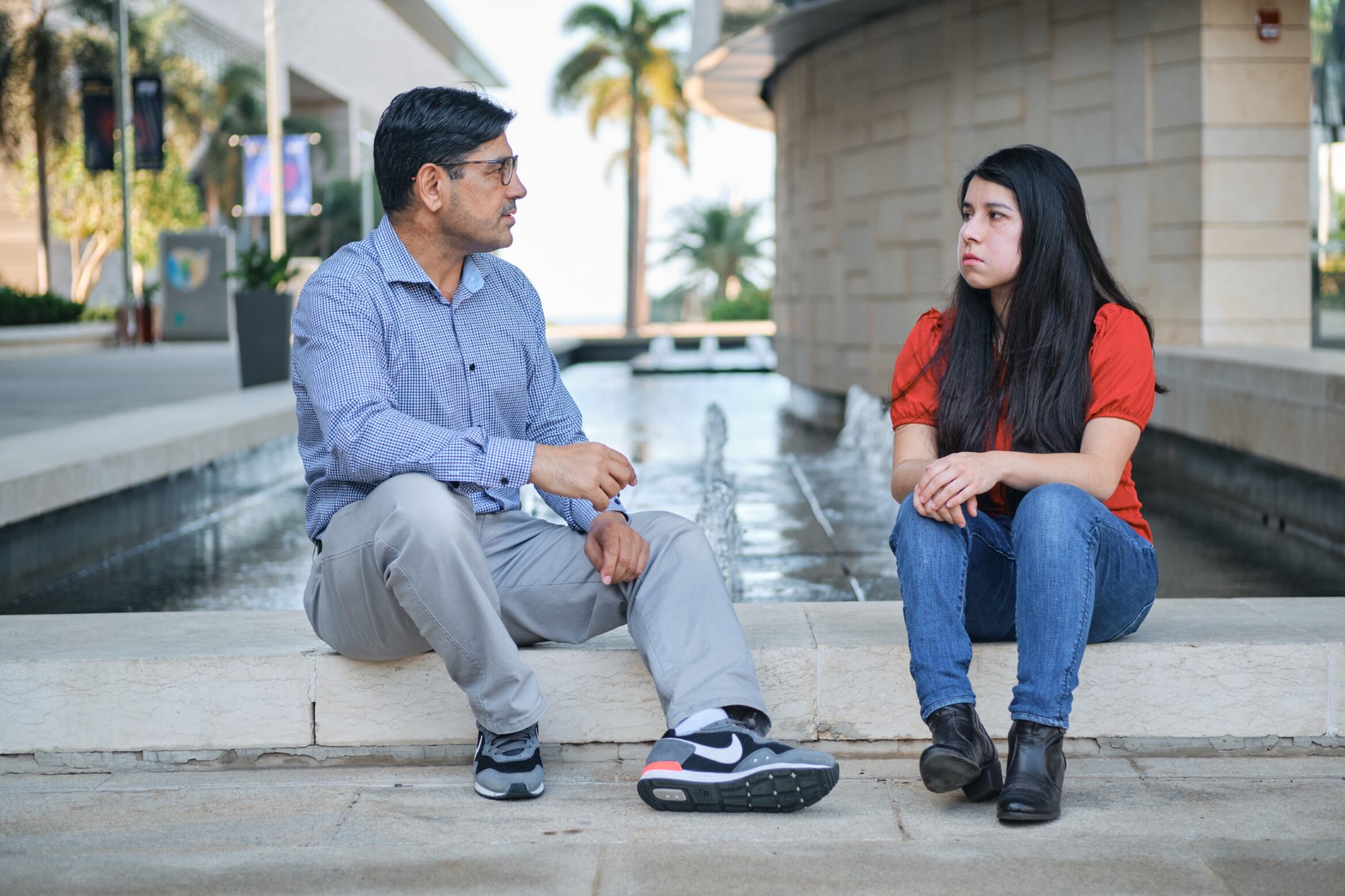Sustainable wastewater treatment delivers clean water and provides energy

Postdoc Syed Haleem Shah (left) and Ph.D. student Julie Sanchez Medina (right) from Peiying Hong’s research group worked on a wastewater treatment technology that can produce high-quality effluent in an energy efficient and decentralized way. © KAUST 2024; Eliza Mkhitaryan
With about half the world’s population lacking access to sanitation, KAUST faculty Peiying Hong says there is an urgent need to provide safe and sustainable sewage treatment to minimize the risk of waterborne diseases.
Since joining KAUST in 2012, Hong and her team have been developing energy-efficient wastewater treatment processes that generate high-quality effluent suitable for reuse. The result is a decentralized process that cleans sewage entirely off-grid.
Since July 2022, this decentralized process has been used in a pilot treatment plant in Jeddah, Saudi Arabia. This is operated in collaboration with the Saudi Authority for Industrial Cities and Technology Zones (MODON) and with funding from KAUST to treat 50,000 liters of wastewater a day, using no energy from the grid.
“This is equivalent to cleaning the wastewater generated by about 200 people each day at zero energy cost,” says Hong.
The plant also generates an average of 1.5 kilowatt-hours of electrical energy from every 1,000 liters of wastewater treated. Moreover, about 410 kilowatt-hours of solar energy is harvested daily and stored onsite in battery systems to enable the plant to operate 24 hours a day.
Besides energy independence, the treatment removes up to 99.9999% of microorganisms present, while producing at least 20 times less volume of solid waste (sludge) than conventional wastewater treatment plants. Hong’s technology uses an anaerobic membrane bioreactor (AnMBR) coupled with a UV-based disinfection process. The treated water can be used for irrigating crops or other non-drinking-water use.
Hong’s research began with the premise that not only can we recover clean water from treated wastewater but also extract energy and reclaim nutrients to use as fertilizer.
When she began her research into anaerobic membrane treatment, she had to overcome several common doubts. Firstly, to prove that anaerobic membrane bioreactors could clean low-strength municipal wastewater, she worked with small reactors.
“We showed that by keeping water inside the anaerobic digestion tank for a shorter time, we could increase the organic loading rate without affecting the overall reactor performance,” she says.
Secondly, to address the concern that AnMBRs are prone to membrane fouling, Hong showed that by using microbial biofilms attached on plastic carriers packed inside the reactor, fouling could be delayed. The third issue was that anaerobically treated effluent contains nutrients that must be removed before the effluent is disinfected. In response, Hong developed and optimized a disinfection strategy that did not require nutrient removal. Having addressed the concerns and proved the concept, she filed for a provisional patent to cover the entire wastewater treatment process.
The zero-energy technology, which is aligned with the Saudi Green Initiative, could play an important role in the Saudi government’s goal to achieve 100% reuse of treated urban wastewater.
Following the success of the pilot project, Hong’s team is now investigating opportunities to enter EU markets while also hoping to work with local stakeholders on using the technology in future decentralized wastewater treatment plants.
“Our vision for this technology is to scale up to 400 cubic meters and beyond, which could serve a community of about 1,000–3,000 people,” Hong says.
“Having multiple decentralized units would build a certain level of redundancy and resilience to better deal with plant failures induced by extreme weather conditions, which are going to be more common as a result of climate change,” she adds.

